
地域の持続的発展を
実現するためにFor Sustainable Regional Development


地域の持続的発展を
実現するためにFor Sustainable Regional Development
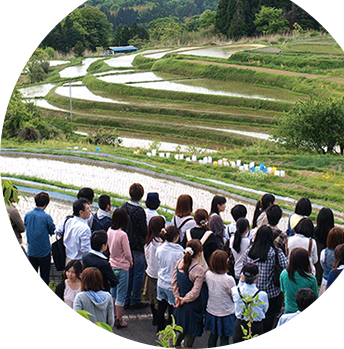
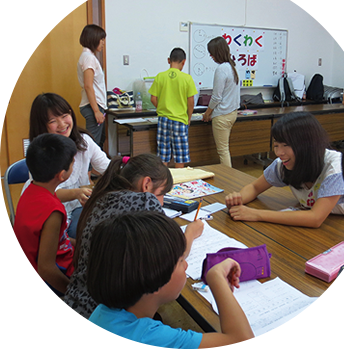
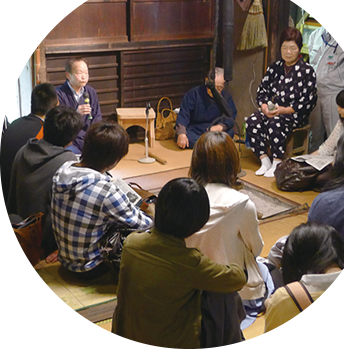
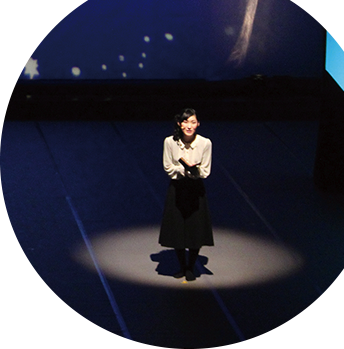
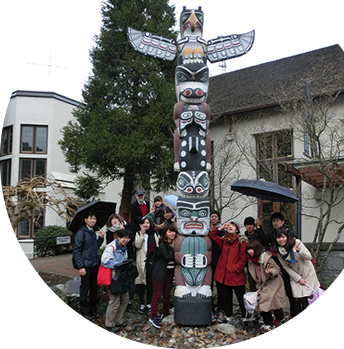

The Faculty of Regional Sciences was established in 2004 in order to foster the development of key individuals who can create prosperous futures for regions.“ Region” is a term that refers to an area where people live and in which they build social relations.
The world consists of overlapping regions that differ by sca le and characteristics. Many problems that people are trying to address today can be better understood by using regions as the basic units on which to center their studies. To that end, the field of regional sciences serves to re-conceptualize existing academic frameworks. Our mission is to develop key individuals with a passion for creativity who offer specialized knowledge and skills in the regional sciences.
The study of regional sciences offers a variety of attractive aspects as part of its enriching fieldwork, such as meeting local residents, the fun of new experiences, and broadening one's views. Independent learning in local communities beyond the confines of a university gives students the opportunity to expand their potential. The "regions" that are the focus of regional sciences are not limited to specific places; rather, they also involve actively engaging with a variety of communities, including those overseas.
The research subjects for regional sciences vary widely. Our aim is to foster the development of key individuals in each region by enhancing their expertise while simultaneously dealing with public issues within the regions and broadening each student's interests.
Fosters the development of key individuals who actively engage in regional creation with local governments, community-based private companies, NPOs, various activity groups, and communities to tackle current and future challenges in each region.
Cultivates individuals who will become key figures that support human development in each region while studying various theories about human development and helping rebuild relationships between the region and education, including education in schools, from the viewpoint of lifelong development. As part of this course, students will have the opportunity to obtain teaching licenses for elementary school, nursery school, and special support school, as well as childcare qualifications.
Develops individuals with the knowledge, skills, language proficiency, and local and on-the-spot sensibilities necessary for creating connections and fulfilling each individual's life and livelihood. Students will also have an understanding of the various cultural relationships and mutually recognize the diversity in other regions in Japan and around the world.
The Faculty of Regional Sciences Center for the Arts is an organization that conducts research and activities to promote regional arts and culture, and helps create, develop, and pass them on to others. While focused mainly on the Tottori region, the Center collaborates with individuals, organizations, recipients, and supporters on activities related to arts and culture as part of an open regional study, conducting various regional contribution activities.
Through an exchange agreement for research and education with universities in Asia, such as China, Taiwan, South Korea, and Vietnam, as well as the United States and Canada, the Faculty of Regional Sciences conducts various types of student exchanges, including short- and long-term study abroad programs. In addition, we also offer overseas dispatch programs, such as overseas field studies and projects in East Asia. By taking advantage of these opportunities, students will actively engage with students from other countries and broaden their horizons.
For details, please see "Tottori University International Exchange and Studying Abroad Information"!
My research focuses on food, an essential part of everyone’s life. Food studies have gained importance as a cross-disciplinary field with two main goals: teaching about food and using food to introduce fundamental concepts in various disciplines. Let me share two cases of sustainable food resource management. First, the Kesennuma shark fishery in Japan seeks Marine Stewardship Council (MSC) certification to distinguish its products from unethical shark finning. While MSC certification initially provided market advantages, its widespread adoption has created new ways of utilizing it, like stakeholder networks shaping the global sustainable seafood trade and exploring how fisheries leverage certification.
Second, seaweed, often overlooked in food policy, is gaining recognition for its role in ocean restoration. In Okinawa’s Onna Village, Mozuku seaweed farmers restore corals, knowing coral health affects seaweed yields. Efforts to prevent red soil run-off also protect seagrass beds. Partnering with stakeholders in the supply chain, they developed climate-resistant Mozuku. The research reveals that quality assurance techniques and stakeholder collaboration in sustaining restorative aquaculture, highlighting Japan’s coral restoration around mozuku seaweed cultivation as a model for maintaining marine product quality and supply chains.
Looking at these cases to provide insights into sustainable food resource management and the role of certification and stakeholder cooperation.

Asian rice paddy cultivation (transplanting seedlings into paddy fields) increases yield per unit area by five to ten times compared to upland cultivation in slash-and-burn farming. The agricultural innovations that supported this "Green Revolution" are thought to contribute to restoring tropical forests and preventing global warming, and further contribute to solving food shortages and poverty in local regions.
A project for transplanting Asian rice paddy cultivation into Africa, which is facing a number of challenges, has a history going back 50 years, and has mainly involved international institutions. Despite the significant amount of international aid money that has been invested, from infrastructure to human resources, Asian rice paddy cultivation has not taken root in Africa.
However, since the 2010s, regardless of international aid, a phenomenon known as the "West African Rice Revolution" has been occurring, with the rapid expansion of rice paddy farming by the farmers themselves. But how and why have farmers been able to accomplish this on their own?
My research mission is to answer that question using knowledge gained from sociology, anthropology, and folklore studies. Starting in April 2022, I launched a compost business with local farmers in rural Ghana, where rice paddies are spread out. By working together with them on this project on a daily basis (action research), I am attempting to reframe Asian rice paddy cultivation in a way that is closer to their perspective and in their context (localization), seeking to better understand their reasoning and wisdom.

Recently, the Japanese economy has been undergoing restructuring within various industries due to a labor shortage. This has caused a serious problem in the field of logistics.
In particular, there are cases where packages are delayed or not delivered in rural areas with poor transportation access and infrastructure, depopulated areas and on remote islands surrounding Japan. This situation is expected to become more acute and serious in the future.
In modern society, the amount of logistics has increased after the development of EC. Unfortunately, this has also been exacerbated and made more severe and intense following the coronavirus pandemic and lockdowns.
It is now necessary to work on clarifying the issues facing home package delivery and the terms of allowing the consumers to obtain the necessities of life - when they want, where they want final delivery and delivered in a timely manner.
My specialty originates from international logistics, starting from the ports. I am working with various companies to investigate issues faced by organizations involved in receiving orders and transactions, through the final delivery journey of the "last mile" to the recipient and end user. It is from my perspective in business strategy, that improving the burden on workers will help streamline and ensure efficient delivery.

Against a backdrop of post-industrialization and the transition to a knowledge economy, the direction for the revitalization of declining and decaying regions has become one of the most contentious issues in urban social geography. Now, in the midst of a convergence toward entrepreneurialism among the urban policies of numerous global cities, this research is focused on the theme of how to create alternative urban spaces that have not converged in that direction.
Using regions in decline in France and Japan as fields of research, this study looks at changes in urban spaces that occur during socio-economic restructuring, and focuses on re-evaluating the urban planning that goes on behind it. In addition, this study examines how this is implemented by architects and citizens, as well as the social tensions among stakeholders.
In recent years especially, attempts have been made to revitalize regions through active promotion of a "social and solidarity economy" in order to democratize the economy through citizen participation. Using the Lille, a French region where such efforts are being made, as the primary field of study, this research looks at the practice of participatory urbanism by citizens, policymakers, and architects as they work together through horizontal relationships to renovate declining urban areas.

I am currently conducting research to introduce Canada’s child advocacy system to Japan. In 2024, I spent a year as a visiting professor at Toronto Metropolitan University, where I engaged in advocacy efforts to amplify the voices of individuals with lived experiences in Japan’s child protection and care system. Specifically, I helped organize a documentary screening in Toronto that showcased their collective voices and collaborated with the Office of the Provincial Advocate for Children and Youth in Ontario to host a talk event, fostering interaction between individuals with child protection experiences in both Japan and Canada.
In Canada, youth research engagement is gaining significant attention as an approach that brings young people and researchers together to explore social issues. This model does not treat participants as mere research subjects but instead recognizes them as research partners, working collaboratively to deepen their inquiries. When addressing child welfare issues in Japan, it is essential to recognize that they possess fundamental insights into these issues. Therefore, incorporating their voices must be a top priority. My current challenge is to develop new research methodologies in collaboration with those with lived experience.

Didactics is the scientific discipline that studies particular kinds of knowledge, such as mathematical knowledge, historical knowledge, or how to ride a bicycle or make an omelette, and is concerned with understanding the mechanisms by which such knowledge is disseminated.
Mizoguchi has a special interest in the didactics of mathematics with the Anthropological Theory of the Didactic (ATD). Traditionally, mathematics education research has tended to be conducted largely within cognitive research programmes. On the other hand, epistemological research programmes that study the institutional ecology of knowledge are emerging, particularly in French didactique des mathématiques.
For example, Mizoguchi’s recent research addresses the question of how to interpret that teachers (both in-service and pre-service) observe lessons. Here, the following framework is set up using the notion of institutional position according to ATD’s cognitive algebra:
An entity with position
in institution is called an instance. The teacher instance expects the relationship of to the didactic stake to be learned by the learner position in the classroom institution to approach the (relationship that position 𝑝 as a learner in should have for ) is expected to approach:
If the relation of to at the beginning of the lesson and at the end of the lesson are , respectively and , the evaluation instance (observer or ) estimates the degree of attainment between
and , i.e. and , as either:
Note that any observation by will be determined by the reference instance :
When regarded in this way, the above question can be translated as follows: when observes a lesson, what praxeological equipment of is judged to be used by ? Here, praxeology is also a notion of ATD, and then the praxeological universe of is defined by and ’s praxeological equipment by .
Mizoguchi is also carrying out theoretical and empirical research on the Study and Research Paths (SRP), , as a model of learning or inquiry in the paradigm of questioning the world as a counter-paradigm to the current paradigm of visiting works, and on the SRP-TE for its application to teacher education, in collaboration with Universitat de Barcelona, where Mizoguchi has been serving as an invited researcher since 2022, and other domestic and international universities. These results have been presented at international conferences and have been published in international journals.
When you paint a picture, you use paint. And yet, even when something seems obvious, there are still many aspects that are not properly understood. One such question is what is the formative function of paint? When we try to answer this question from the perspective of hue, topics such as color theory can be applied. However, when we also look from the perspective of paint as a material, it starts to become much more complex. It is with that in mind that I am conducting research and studies on this topic, with a particular focus on Japanese painters, while continuing to pursue my own work as an artist.
I am also involved with art education. As an instructor, I have to consider what teaching methods are necessary for beginners to effectively utilize the formative fundamentals mentioned earlier. As a result, I try to foster an attitude that does not simply look at what the painting is of, as is often the case with early childhood educators, but also how it was painted, as well as how it is perceived, and ways it can be evaluated. Furthermore, while in early childhood education a lot of value is placed on how "fun" a subject is, I also believe that it is important to provide experiences that allow students to understand what is intrinsically fun about bringing that creative ingenuity to life.

My research field is in environmental education and adult and community education, focusing on non-formal education and informal learning related to reconstruction from disasters and environmental conservation. To date, I have visited Kesennuma City and Ishinomaki City in Miyagi Prefecture and Toyooka City in Hyogo Prefecture to conduct my research, where I have interviewed local residents about various topics related to my research.
Currently, regional communities are dealing with a variety of issues that interfere with their sustainability, such as climate change and poverty. We therefore need to consider what efforts are needed to solve these issues, how to ensure that such activities are carried out in these regions, and what people will learn and how they will change as a result of participating in these activities. It is also necessary to consider what we will need to change in order to solve these issues. Finding answers to these questions is my research mission. In recent years, I have also conducted research on the passing down of the experience of the Fukushima nuclear accident, on social education finance, and on cooperation between high schools and their local communities.

My primary field of expertise is on the Qing dynasty's policies toward Tibet in the early 18th century. I explore the political style of the Qing dynasty in its role as protector of Tibetan Buddhism in response to conflicts arising in that world, while also analyzing the dynasty's political process, with a focus on how they reorganized Tibetan Buddhism. In the Studies of Global and Regional Cultures, I am in charge of a seminar on East Asia and am involved with a project on East Asia (overseas survey of South Korea, China, and Taiwan), which serves as a place for students to learn about various East Asian cultures, histories, and languages in each region.

My research is mainly focused on the works of Osamu Dazai and other literary figures with connections to Tottori. Because pursuing interests based on collectives that encompass individuals, such as nations, regions, and families, inevitably leads to violations of human rights, I am striving to verbalize the beauty and value of expressions by paying close attention to the words that are used to avoid losing sight of the individual.
For example, in Dazai Osamu's novel “Tsugaru”, as a child, the narrator is taught by a close relative that “you must not harm the bodies or minds of yourself or others”, and it depicts the moment when the world is divided into good and evil. What makes it so difficult for each and every one of us to seize such opportunities for happiness and to live up to those standards? For those who do not turn their backs on such difficult questions, literature provides valuable insights and encouragement.

I specialize in contemporary art, with a particular focus on post-war Japanese art and art criticism. By researching avant-garde art in various regions of Japan and examining the diverse connections between them, I aim to compile a history of art that is not biased towards Western or Tokyo-centric perspectives. I also have an interest in art collectives, and am currently researching their various management structures and methods of expression. As a specific example, I investigated the activities of the avant-garde art group “Space Plan,” which was active in Tottori City between the 1960s and 1970s. They shared similar principles of minimalism, and in 1969 they held an unprecedentedly large group exhibition at the Tottori Sand Dunes. Although only a few of their works remain, I have organized an exhibition of their works based on documentary photographs and materials. I am also interested in artists who are active in Japan today, and I have contributed to collections of works and exhibition catalogs by artists such as Yoichi Umetsu and Kazuki Umezawa.

My primary focus is on the United States, where I look at how donations, career choices, and consumption activities are related to people's beliefs and cultural backgrounds. In particular, I focus on people belonging to Anabaptist groups, such as the Mennonites and Amish, within Christianity. For example, through observations and invterviews, I research how religious backgrounds and networks are related when making decisions about jobs or donations. While the occupations and lifestyles of Amish and Mennonite people are diverse, at first glance, their beliefs and religious backgrounds appear to be mostly unrelated. However, when we look more closely, we find that aspects such as their religious views and community networks are involved in a multitude of ways. There are many people around the world who participate in educational support, disaster relief, and other outreach activities, so in the past, I also examined the involvement of Mennonite people in fairtrade handcraft organizations in Bangladesh.

CONTACT US E-mail reg-syomu@ml.adm.tottori-u.ac.jp